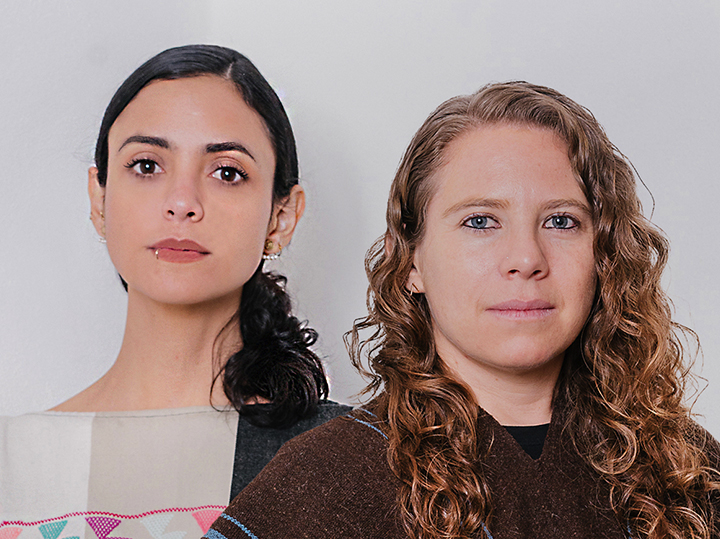ADAPTATION Lecture: Mariana Ordóñez Grajales + Jesica Amescua Carrera
Monday, February 12, 2024
6:00 pm - 6:00 pm
Register for access to the virtual lecture.
Collective Creation of Convivial Worlds
Social Production and Management of the Habitat breaks with the ideology of patriarchal modernity because its methodological-practical axis is based on the participation of various actors who collaborate from self-organization and mutual aid in search of a more just and equitable society. Therefore, participation necessarily implies social processes of redistribution of power in which people, far from being conceived as spectators or passive consumers, get involved in an active, responsible and organized way in decision-making about the production of their habitat through intercultural, inter-epistemic, interactoral and interscalar processes. As Jean Robert asserts, participation is a constant process of re-existence of the individual and collective being, as well as a common effort to recover creative autonomy and freedom to inhabit.
About Comunal, founded by Mariana Ordóñez Grajales + Jesica Amescua Carrera
Comunal is a working group that collaborates integrally with organized collectives in the design, defense and self-production of the habitat. They act from the complex vision of the Social Production and Management of the Habitat [SP&MH], an ethical-political doing that recognizes the habitat as a self-managing social process based on cooperation and participation as a direct action to cultivate the freedom to inhabit [them] and the common response-ability.
Their collaborative practice has led them to reflect critically and reject what they call the “architecture of patriarchy” – hegemonic and disabling way of acting that operates from the racist, capitalist, and colonial vision of modernity – to embrace a trans-formative idea: we all have the creative, epistemic, affective and organizational agency to design and produce our habitat.
The work Comunal does together with diverse organized groups has been recognized in various places, including: “Emerging Voices 2018” Award, First Place in “Research” in the “Latin American Recognition of the Post-disaster Social Reconstruction of the Habitat”, First Place in “AR Emerging Architecture Awards 2019”, Finalists at the “Lisbon Triennale Millenium Award 2019”, Honorable Mention in the “Oscar Niemeyer Award for Latin American Architecture 2020”, and award nomination to “Mies Crown Hall Americas Award 2022”, among others.
About the Lecture Series
Adaptation implies a response to change. To adapt means to adjust, modify, and alter one’s response to changes in its various forms: slow, radical, planetary, and local. Adaptation suggests acknowledging new ways, ideas, technologies, and mindsets reacting and responding to possible futures, messy pasts, and complex contexts. Adaptation also refers to switching genres and media to serve better communication or to reach new audiences.
The processes of adaptation are often not as transparent as we would like them to be. They invite analyses, careful investigations, and debates on usefulness, functionality, reuse, ruin, and waste. Adaptation may sometimes mean finding ways to survive conditions that are not ideal and out of control, whereas to adapt may mean recalibrating one’s expectations to fit into new paradigms. As we confront inequities emerging from discrimination, gentrification, and climate change, among other global shifts, adaptation is everywhere.
Our lecture series cuts across geographies and disciplines to look at crises and inflection points, changing extraction and expert cultures, mutating legal, regulatory, and mapping systems, preservation and surgical interventions, and innovative and interdisciplinary construction practices.

- Location
- Virtual


